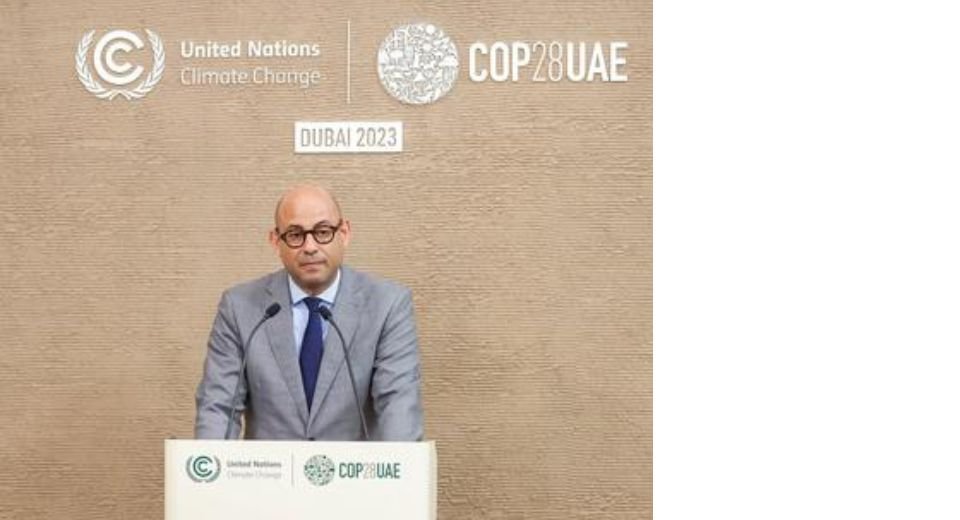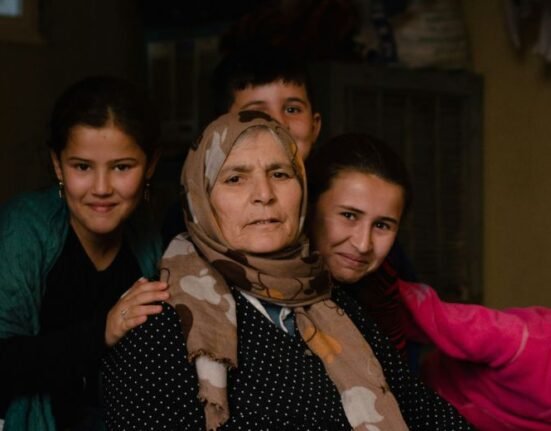HQ Team
December 6, 2023: The ongoing annual UN climate conference in Dubai, COP28, must deliver a bullet train to speed up climate action and stop the current “old caboose chugging over rickety tracks,” UN Climate Chief, Simon Stiell said.
“By the end of next week, when the conference is set to close, COP28 must deliver a bullet train to speed up climate action. We currently have an old caboose chugging over rickety tracks.”
Mr Stiell said technologies and solutions existed, and the tools were all there on the table.
“It’s time for governments and negotiators to pick them up and put them to work.”
The conference which ends on December 12, is facing rough weather ahead regarding targets to curb greenhouse emissions and phase out fossil fuels.
‘Don’t score points’
Government negotiators at the Dubai climate change conference, must not play “lowest-denominator politics” and instead act on curbing global warming to end the climate crisis, Mr Stiell said.
“All governments must give their negotiators clear marching orders,” Mr Stiell said, according to a UN statement. “We need highest ambition, not point scoring or lowest common denominator politics.”
Mr Stiell is the Executive Secretary of the UN Climate Convention, which facilitates COP28.
On the conference’s early ‘win’ on loss and damage, he acknowledged that the long-awaited deal had given COP28 “a spring in its step.”
“But it is just a start. We would be kidding ourselves if we think it’s a tick in the box for finance and support at this COP. More is required.”
“Good intentions won’t halve emissions this decade or save lives right now. We need enhanced transparency, and to deliver our promise to fund climate action across the world,” he said.
‘Heavy on posturing’
During the next round of climate talks, the UN climate chief said, “only serious progress on finance can deliver frontline results,” which is the “great enabler” for climate action.
The Global Stocktake is the vehicle to get climate action on track, Mr Stiell said.
The stocktake process will review how much progress countries have made – and identify where there are gaps – in reaching the goals set by the landmark 2015 Paris Climate Change Agreement, and its outcome will lay the roadmap for accelerated climate action for the years ahead.
“On the Global Stocktake, we have a starting text on the table… But it’s a grab bag of wish lists and heavy on posturing.
“The key now is to sort the wheat from the chaff,” he said. “If we want to save lives now and keep [the] 1.5 goal within reach, the highest ambition COP outcomes must stay front and center.”
The UN climate conferences are government-level large-scale annual gatherings focused on climate action.
The UNFCCC convention entered into force on 21 March 1994 to prevent “dangerous” human interference with the climate system. Today, ratified by 198 countries, it has near-universal membership. The Paris Agreement, adopted in 2015, works as an extension of that convention.
Housing, urban development
On December 6, the COP28 Presidency joined the United Nations Human Settlements Programme (UN-Habitat), the UN Climate Change High-Level Champion for COP28, and Bloomberg Philanthropies’ call on housing, urban development, environment, and finance ministers to back the ‘Joint Outcome Statement on Urbanization and Climate Change’.
The statement, which was supported by over 40 Ministers of Environment, Urban Development and Housing, was put forward at COP28 during the second Ministerial Meeting on Urbanization and Climate Change.
The COP28 Presidency urged national governments to fully integrate climate action among all levels of government and collaborate with subnational governments on the design and implementation of new climate plans and policies, according to a COP28 statement.
The statement sets out a ten-point plan to boost the inclusion of cities in the decision-making process on climate change, drive multilevel climate action and accelerate the deployment of urban climate finance so that cities are prepared and supported to respond to the climate crisis.
Currently, as many as 90% of cities are threatened by rising sea levels and storms, and their residents are exposed to ten degrees higher temperatures than their counterparts in rural areas.








